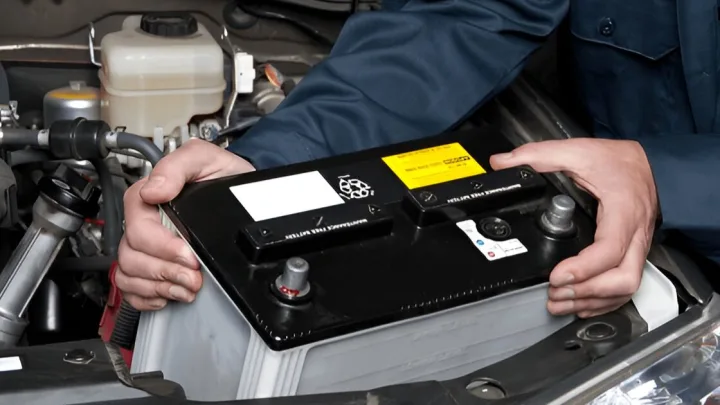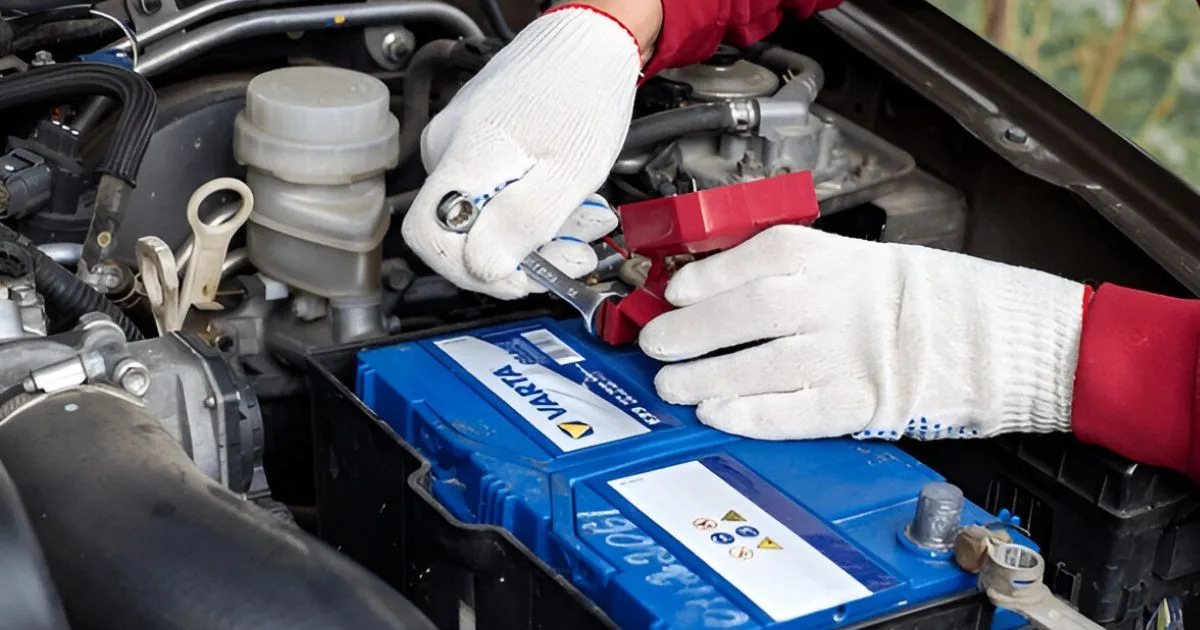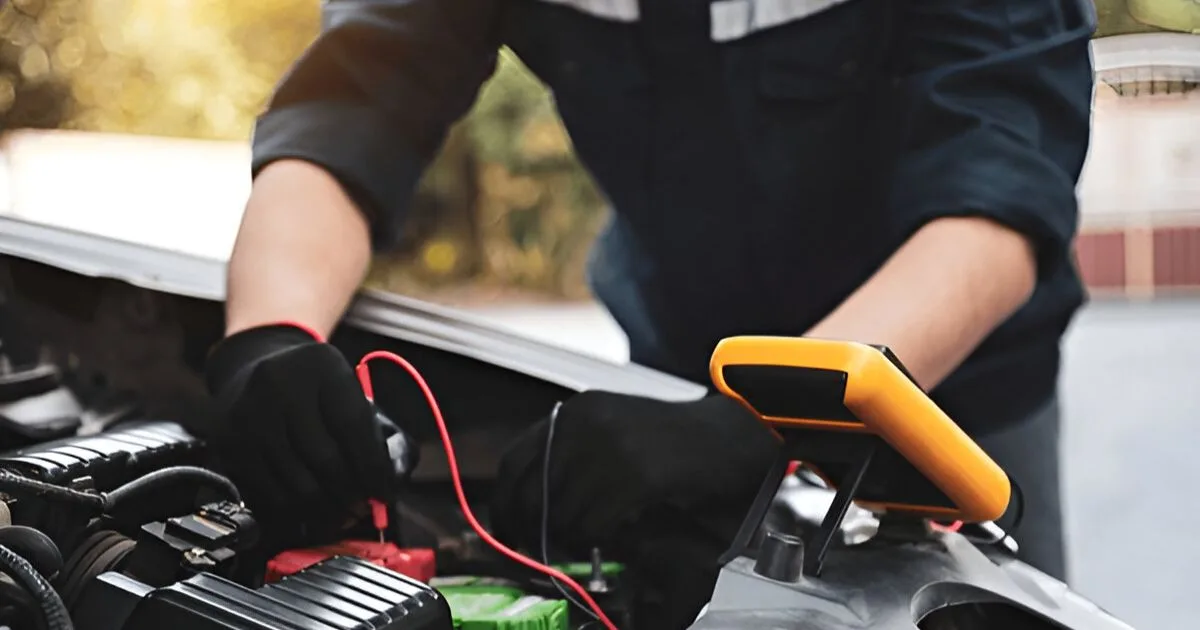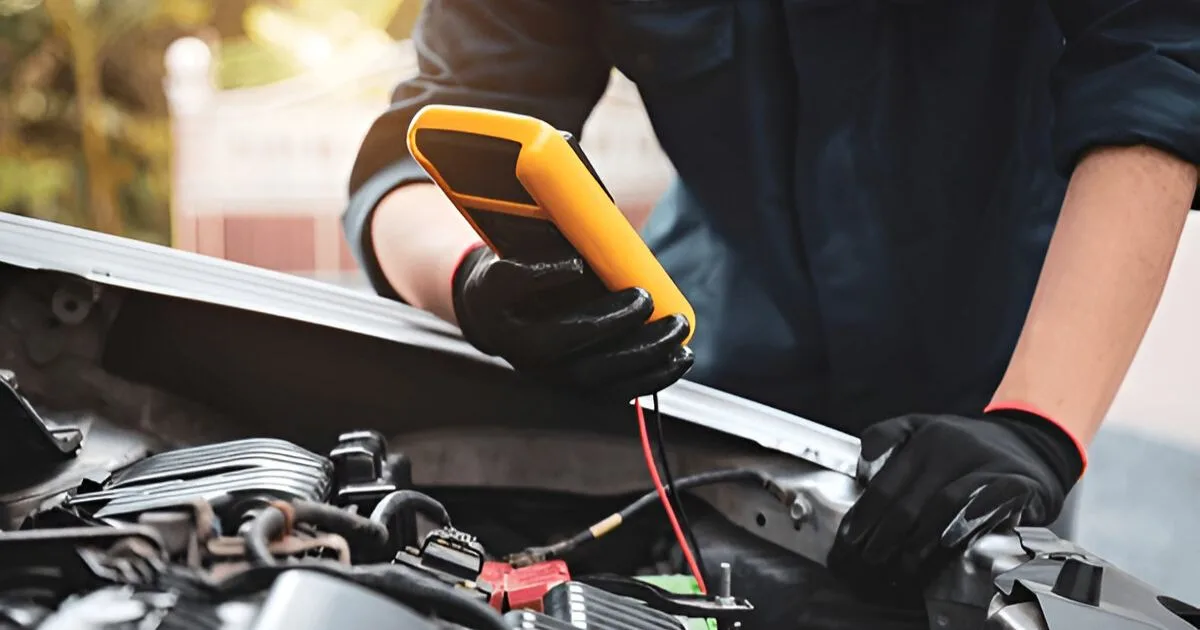
Replacing a car battery can restore original performance levels, particularly in starting and electrical systems. A new battery ensures reliable ignition and proper functioning of electronic components.
A car's battery is the unsung hero of the vehicle's electrical system, silently powering everything from the headlights to the radio. Over time, batteries deteriorate, leading to sluggish engine starts or even complete failure to power up your vehicle. A fresh battery can breathe new life into your car, delivering the necessary jolt to all the electrical systems and ensuring a swift, reliable start every time.
This simple replacement can prevent unexpected breakdowns, saving you from the hassle and potential danger of being stranded. Car enthusiasts and daily commuters alike recognize the importance of a strong battery in maintaining their vehicle's performance and avoiding the inconvenience of a car that won't start.
Introduction To Replacing Car Battery
Car batteries are vital for smooth vehicle operation. Over time, batteries degrade. Performance may drop. Replacing a car battery can restore this performance. Let's explore how a new battery affects car functionality.
The Role Of The Battery In Vehicle Performance
A car's battery powers all electrical components. It starts the engine. It also stabilizes electrical currents. A strong battery ensures consistent vehicle performance.
Symptoms Of A Failing Car Battery
- Slow engine crank: The car takes longer to start.
- Dim lights: Headlights or interior lights may appear weaker.
- Warning lights: The dashboard may display a battery alert.
- Bad smell: A scent like rotten eggs can signal a battery issue.
- Corrosion: White, ashy substance on the metal parts of the battery.
 Impact Of Battery Condition On Car Agility
Impact Of Battery Condition On Car Agility
Impact Of Battery Condition On Car Agility
The Impact of Battery Condition on Car Agility is crucial. A healthy battery ensures your car runs smoothly. On the other hand, a weak battery can slow down your car.
Let's explore how the battery condition affects your car's agility.
Electrical Systems And Their Reliance On The Battery
Your car's electrical systems depend heavily on the battery. These systems include:
- Ignition system
- Headlights
- Audio system
- Dashboard lights
- Electric windows
A strong battery keeps these systems running well. This makes your car agile and responsive.
How A Weak Battery Affects Driving Dynamics
A weak battery leads to several problems:
- Slow engine start
- Dim headlights
- Unresponsive electric windows
- Weak air conditioning
These issues can make your car feel sluggish and less agile. Replacing a weak battery can improve your car's performance and agility.
Comparing Old And New Batteries
Understanding the impact of a car's battery on its performance is crucial. A battery's age can significantly affect a vehicle's functionality.
This section delves into the differences between old and new batteries, focusing on performance metrics and agility benefits.
Performance Metrics Of Aged Batteries
Old batteries weaken over time. Their ability to hold a charge diminishes. This causes several issues:
- Slow engine start: The car struggles to turn on.
- Dim lights: Headlights and interior lights lose brightness.
- Unreliable electronics: Dashboard indicators and GPS fail.
These symptoms suggest the battery is nearing the end of its lifespan. They indicate poor performance metrics in aged batteries.
Benefits Of A Fresh Battery On Agility
A new battery revitalizes your car. It directly enhances vehicle agility:
- Quick starts: The engine ignites swiftly.
- Bright lights: All lights shine at full intensity.
- Stable electronics: Electronics operate without fail.
These improvements result from a strong, stable voltage from a fresh battery. A new battery ensures your car responds promptly to all inputs.
Car Battery Types And Vehicle Response for Replacing
Car performance links closely with battery type. A fitting battery can transform a ride. It boosts ignition, electronics, and overall agility. Let's explore how battery types affect vehicle response.
Standard Lead-acid Vs. Advanced Batteries
Lead-acid batteries are common in cars. They are affordable and reliable.
Advanced batteries, like AGM and lithium-ion, offer more power. They are lightweight and efficient.
| Battery Type | Pros | Cons |
|---|---|---|
| Lead-Acid | Cost-effective, proven reliability | Heavier, less efficient |
| AGM/Lithium-ion | Higher performance, lighter | More expensive |
Choosing The Right Battery For Optimal Agility
Selecting the right battery is vital. It ensures top agility and quick starts. Consider your car's needs.
- Check the manufacturer's specifications.
- Match the battery to your driving habits.
- Consider climate and car electronics.
Upgrading to a premium battery may boost performance. It ensures your vehicle responds well.
 Car Battery Replacing and Install: Diy Vs. Professional Service
Car Battery Replacing and Install: Diy Vs. Professional Service
Car Battery Replacing and Install: Diy Vs. Professional Service
Replacing your car's battery can boost its performance. Doing it yourself saves money. Or, a pro can ensure a flawless job.
Steps To Replacing A Car Battery Yourself
Changing a car battery is straightforward. Follow these steps for a smooth DIY installation:
- Turn off the engine.
- Open the hood and locate the battery.
- Disconnect the negative cable first.
- Now, disconnect the positive cable.
- Remove any clamps or screws holding the battery.
- Take out the old battery carefully.
- Place the new battery in the tray.
- Secure it with clamps or screws.
- Connect the positive cable first.
- Then, connect the negative cable.
- Ensure all connections are tight.
- Start the engine to check the battery.
When To Consider Professional Car Battery Replacing
Some situations call for expert help. Consider a professional service in these cases:
- Complex car models with hard-to-reach batteries.
- Uncertain about doing it right.
- Lack of tools for the job.
- Warranty concerns with DIY replacement.
- Free installation with battery purchase.
Optimizing Your Ride With The Right to Replacing car Battery
A car's performance can change with a new battery. The right battery provides the power needed for your vehicle's features. It ensures smooth operation. A well-chosen battery can enhance your driving experience.
Matching Battery Specifications With Vehicle Needs
Choosing the correct battery is crucial. It must meet your car's requirements. A mismatch can lead to poor performance. It can also cause damage to your vehicle's electrical system.
- Check the owner's manual for the recommended battery type.
- Consider the size, power capacity, and reserve minutes.
- Choose a battery that aligns with your driving habits and climate conditions.
Long-term Agility Maintenance
A good battery keeps your car agile. It helps in maintaining long-term performance. Regular check-ups are essential to keep your battery in top shape.
- Inspect battery terminals for corrosion.
- Test battery voltage periodically.
- Keep the battery case clean.
Replace old batteries before they fail. This ensures your car remains ready for the road.
 Real-world Evidence
Real-world Evidence
Real-world Evidence
Let's explore how a new car battery can boost performance. We will look at real-world evidence from case studies and testimonials.
Case Studies On Replacing Car Battery And Performance
Several case studies show the impact of new batteries on car performance. In these studies, cars with old batteries had slow starts and dim lights. After replacing the batteries, these cars started faster and their lights shone brighter.
- Study 1: A 2010 sedan improved its start time by 2 seconds.
- Study 2: A 2015 SUV saw better fuel efficiency.
- Study 3: A 2008 hatchback had brighter headlights.
Testimonials From Car Enthusiasts And Experts
Many car enthusiasts and experts share their experiences. They say a new battery can make a big difference.
- John Doe: "My car runs like new with a fresh battery."
- Jane Smith: "Replacing my old battery saved me from breakdowns."
- Auto Expert: "A strong battery is key for top car performance."
All agree that a good battery means a better-running car.
Common Misconceptions
Many car owners think a new battery boosts car performance. This is not always true. Let's debunk some myths and look at the facts about car batteries and performance.
Myths About Replacing Car Battery And Performance
- More power equals better performance: A new battery doesn't add horsepower.
- Immediate results are guaranteed: Battery replacement may not solve all issues.
- All batteries are the same: Quality and type matter for compatibility and longevity.
Facts To Consider Before Replacing Your car Battery
Assess your car's needs first. Not all performance issues link to the battery.
| Checklist | Action |
|---|---|
| Car age | Older cars may benefit less from a new battery. |
| Electrical issues | Non-battery issues can mimic battery problems. |
| Battery age | Replace if beyond its expected life span. |
Remember, a new battery maintains, not enhances, car functionality.
Related Post
How to Test a Car Voltage Regulator With a Multimeter: Quick Guide
What is the Most Common Battery Cable Terminal: Key Insights
Why Sulphuric Acid is Not Used on a Car: Dangers Revealed
Can You Use Aluminum Foil on Car Battery Terminals? Boost Performance!
What Happens When Car Battery Cables are Wrongly Connected: Risks & Fixes
How to Install a Car Battery Holder: Quick & Secure Guide
How Do You Know If Your Car Alternator is Bad? Spot Signs Now!
Conclusion
Replacing your car's battery can significantly boost its performance. Short, swift starts become a reality, and electronic components run smoother. Regular checks ensure your vehicle stays in top shape. Ultimately, a new battery is a small investment that leads to improved reliability and efficiency on the road.
Keep your car running at its best with timely replacements.
Disclosure
Some links may be affiliate links. That means we may earn a small commission at no extra cost to you.